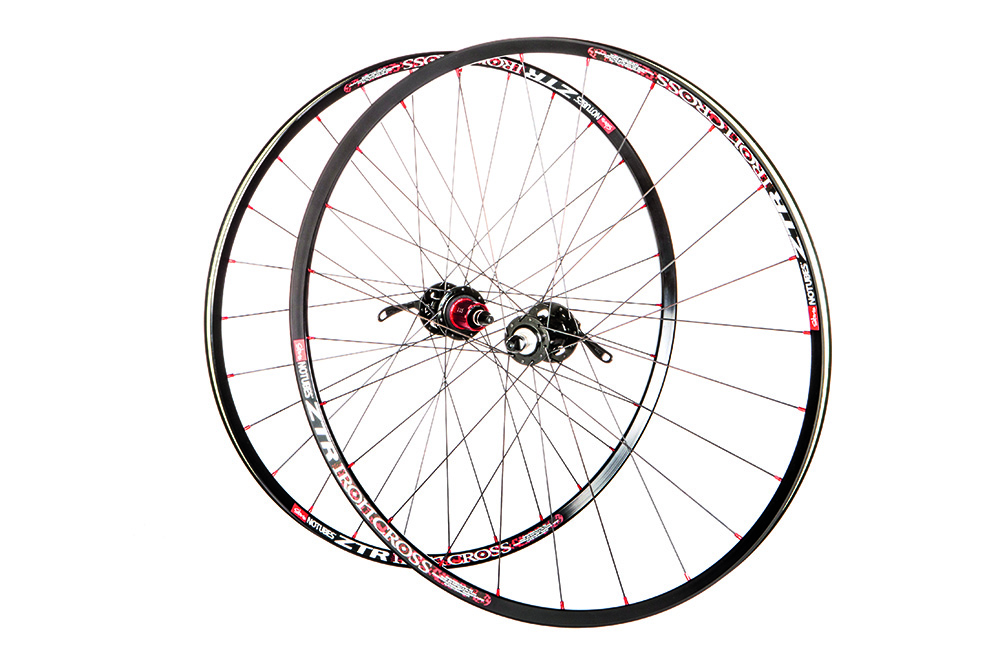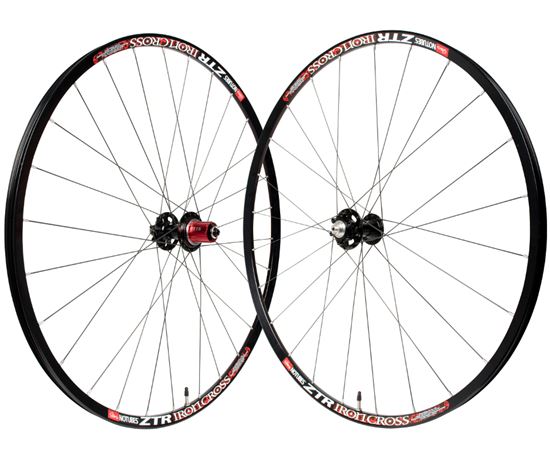Stan’s NoTubes Iron Cross Team Wheelset review
We 'go tubeless' with Stan's NoTubes Iron Cross Team wheelset, and see if life without inner tubes is as good as we imagined

Stan’s NoTubes have been blowing the tubeless trumpet for a long time now, and their wheels are a good place to start if you’re considering the transition. The disc-specific hub on these Iron Cross wheels remains the same through the range, but distributor Paligap has only chosen to offer this ‘Team' model, which is fine with us, as they’re the best overall wheel in the range.
-
+
Lightweight
-
+
Low pressures
-
-
Limited tyre choices
You can trust Cycling Weekly.
At 1510grams, Stan’s NoTubes Iron Cross Team disc wheelset is an easy weight saver over a pair of entry-level wheels that come supplied with most disc equipped cyclocross bikes.
The real reason you’d buy some Stan’s though is for the tubeless compatibility. With the ability to run without innertubes, there’s the potential to save at least an extra 200 grams through this setup.
Weight saving is an obvious boon, but on race day, the real benefit came in the form of very low tyre pressures.
Only 22psi for me, based on Stan’s own recommendations for a 62kg rider. The ride feedback and overall grip levels received a dramatic increase, much closer to a tubular experience than any wheel with an inner tube can offer.
22psi sounds soft, but the rim is designed for low pressures - they're constructed with cyclocross and off-road riding in mind. (Stan's have a new wheelset, the Grail, which is designed to plug a gap in their range. Customers looking for a wide profile rim suitable for high volume road tyres now have something just for them.)

Fitting the tyres is a slightly longer job than normal, but it’s not particularly difficult. The key is setting them on the rim correctly, which you do using a high pressure pump, or better, a co2 pump (hand-held co2 canisters work just fine, but you’ll need one for each tyre).
There is a lot of useful information on Stan's NoTubes website; including installation tips and how to find the correct pressure.
The latest race content, interviews, features, reviews and expert buying guides, direct to your inbox!
Some sealant is poured inside the tyre before the final fit, which will fill any puncture you might get from thorns or glass during a ride.
Even without the weight saving, we’d still recommend trying it out, we like it that much. There are a couple of negative points, but in our opinion they’re not significant. If you get a puncture and for some reason the sealant doesn’t do its job, you can still use an inner tube for the rest of the ride, so that isn't an issue.
We have seen riders ‘burp’ a tyre during a race; this is when a tyre falls off the rim mid-corner. This only really occurs with improper tyre mounting, or running pressures which are too low, so it’s easily avoidable.
The 28/24-spoke wheels aren't the stiffest around, but don’t offer too much unwanted feedback, and importantly, have proven reliable through an early winter of testing.
At the moment the choice of tubeless rims and tyres is still fairly small. Over the last couple of years the uptake by industry behemoths has been slow, but we hope that tubeless systems find more traction over the coming seasons, because a lot of riders would appreciate the benefits of 'going tubeless'.
Find out more over at Paligap's website.